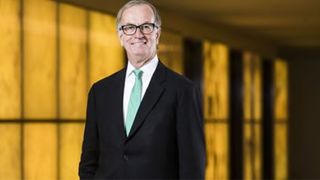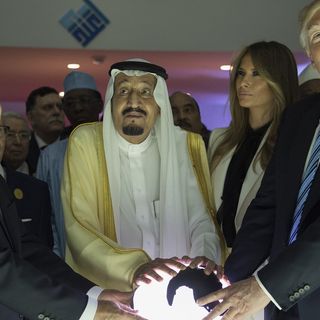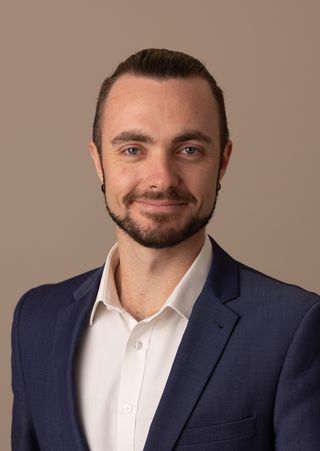
After sitting vacant for more than two years — the longest stretch in the history of bilateral relations — the Trump administration has nominated a new US ambassador to Australia.
If all goes according to plan, Canberra will soon receive an ambassador with two strengths that set him apart: a track record of navigating complex US and Asian bureaucracies, and direct access to the president and his closest aides. While Australia’s experience with Admiral Harry Harris’ aborted nomination as ambassador last year ought to give pause before celebrating the appointment as a done deal, Australia could have done far worse in the era of an erratic and unconventional presidency.
He knows Asia
The first bit of good news for Australia is that Arthur B. Culvahouse, Jr., (or simply ‘A.B.’) is Asia-literate. He will likely bring an instinct and ability to facilitate cooperation, and not simply confrontation, with China on trade issues. Compared with the belligerent approach of President Trump to global trade issues (including with allies), Culvahouse’s approach will likely prove far more complementary to Australian interests.
Culvahouse will bring a nuanced understanding of the East Asian legal and economic landscape when he arrives in Canberra, drawing on the decades he spent leading renowned US law firm O’Melveny & Myer (OMM). He is presently chair emeritus at OMM, which was one of the first American firms to establish a significant presence in the Asia-Pacific. OMM operates multiple offices out of East Asia’s leading economies including China, Japan, Korea and Singapore.
Crucially, the firm deals extensively with matters relating to foreign investment and national security. It has assisted Asian (particularly Chinese) clients in navigating CFIUS regulations and reforms impacting upon their business in the United States. Culvahouse himself has managed several matters concerning the regulation of trade and investment between American and Asian entities. For instance, he assisted a US investment bank with structuring a domestic securities joint venture in China, consulting with the both Department of Justice and Securities and Exchange Commission “with respect to certain economic contributions required by the PRC government”.
Relationship management
Given that Canberra is grappling with how to manage its own China relationship, the appointment of an ambassador with personal experience in striking a balance between security and prosperity is rather timely.
With a finger on Asia’s economic pulse, Culvahouse will likely be an asset for Australia as Canberra seeks to manage the consequences and complexities of growing competition between China and the United States. His professional background demonstrates that robust US-China economic relations can be maintained without compromising national security interests, even as the Trump administration cracks down on Chinese trade malpractice and misbehaviour. Given that Canberra is grappling with how to manage its own China relationship, the appointment of an ambassador with personal experience in striking a balance between security and prosperity is rather timely. It should also soothe Australian anxieties over the future of the alliance at a time when a number of commentators are calling its relevance into question. Culvahouse's credentials and convictions are a clear signal that America has not forgotten about Australia.
He’s a globalist
Culvahouse is by all accounts a globalist. His support for key themes of liberal internationalism that have traditionally underpinned Republican foreign policy will prove beneficial to Canberra’s own efforts to manage the Trump relationship. Aside from his involvement with the legal aspects of international trade facilitation, Culvahouse’s years spent serving on various national security and intelligence bodies is likely to have given him a sense of both the importance of America’s alliance relationships, including with Australia, as well as the importance of strategic stability and conflict management in US foreign policy. He was present at the birth of the INF Treaty in 1987 as Ronald Regan’s legal counsel (there is of course irony in his return to government service under the administration that has vowed to terminate that Treaty), and previously sat on the Federal Advisory Committee on Nuclear Failsafe and Risk Reduction (1990-1992) and Nuclear Command and Control System Federal Advisory Committee (2008-2009).
Party and White House credentials
Culvahouse possesses in equal parts the two qualities of US ambassadors most prized by Australian officials: political pedigree and personal access to the president. He is widely renowned as a ‘fixer’ and trusted political operator within the Republican establishment. His views align more closely with the GOP centrism of George W. Bush or Ronald Reagan than those of Donald Trump. A regular financial contributor to Republican election campaigns, Culvahouse has worked closely with multiple Republican presidents and presidential nominees, most notably serving as White House Counsel under Ronald Reagan from 1987-1989. In fact, Culvahouse is well known as a low-key, efficient and reliable ‘keeper of secrets’. For this he has been asked to vet vice-presidential nominees for multiple presidential candidates (including Ford, McCain and Trump), a task that would not be bestowed on someone without a proven capacity for discretion and diligence. He was present in the White House throughout the high-points of the ‘Watergate’ and ‘Iran-Contra’ scandals, and was entrusted with positions on several highly sensitive advisory committees including the Nuclear Command and Control System Federal Advisory Committee (1990-1992), the President’s Foreign Intelligence Advisory and Intelligence Oversight Boards (2006-2009), and the Nuclear Command and Control System Federal Advisory Committee (2008-2009).
American foreign policy after the midterms

Culvahouse’s GOP credentials are complemented by a favourable relationship with the present administration. He was selected to vet Trump’s vice-presidential candidates in 2016, eventually settling on Mike Pence, and seems to have maintained his positive rapport with Trump despite reportedly turning down requests to assist in curtailing the Muller probe and his criticism of Trump’s decision to fire James Comey. Culvahouse previously worked with current National Security Adviser John Bolton, and publicly supported the latter’s nomination as US ambassador to the United Nations in 2005. He is also reportedly familiar with Deputy Secretary of State John Sullivan.
He’s a ‘safe’ pick
Finally, it has to be noted that Culvahouse’s appointment is also likely a reward for years of loyal service to the Republican Party and the United States writ large. At 70-years-old he is approaching the end of his career. This may suggest that, unlike Harry Harris, his nomination will not be pulled at the last minute to satisfy other geopolitical prerogatives. Nor is he likely to have his tenure cut short during this administration.
Culvahouse is a competent operator and his posting is likely to prove effectual no matter how lengthy or brief. His impending appointment should satisfy even the most disgruntled of Australian commentators, and will be a complement to Canberra’s efforts to walk the line between security and trade in an era of intensifying geopolitical competition between Washington and Beijing.





